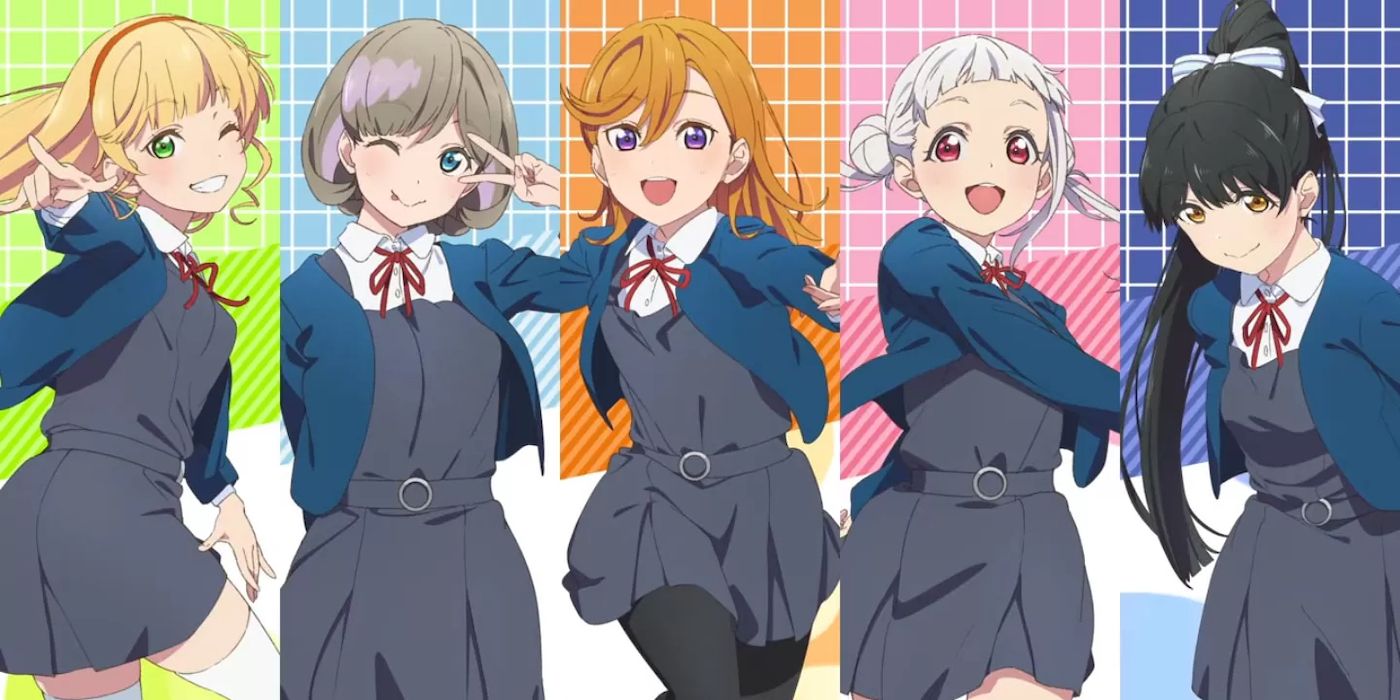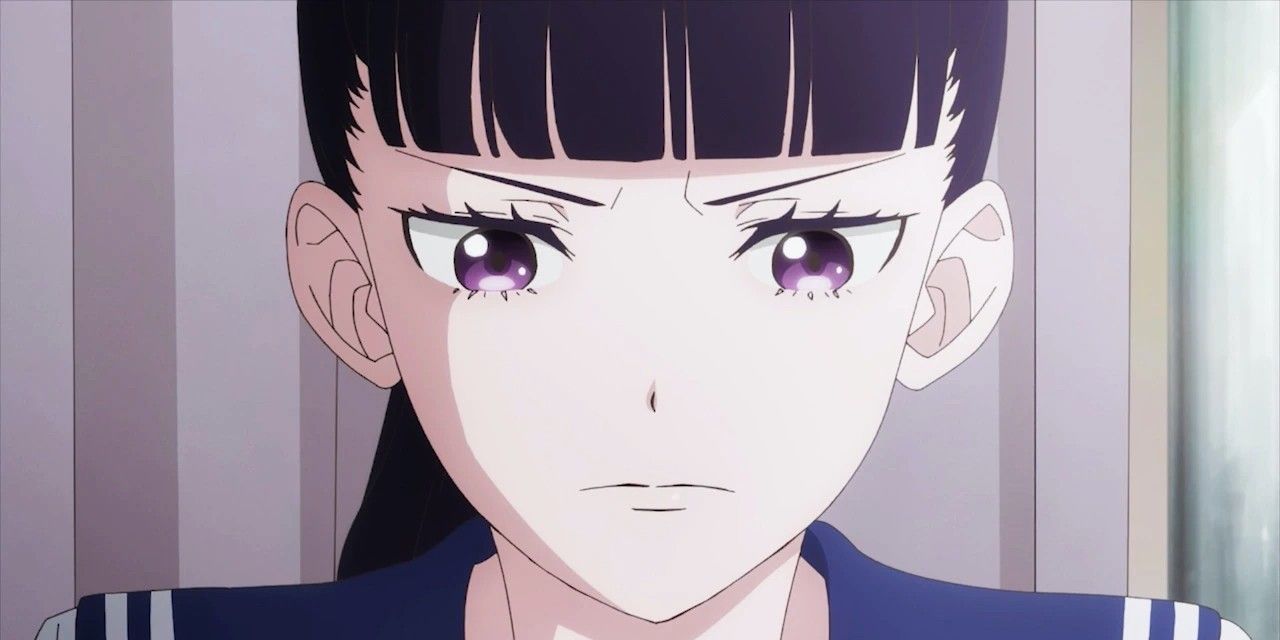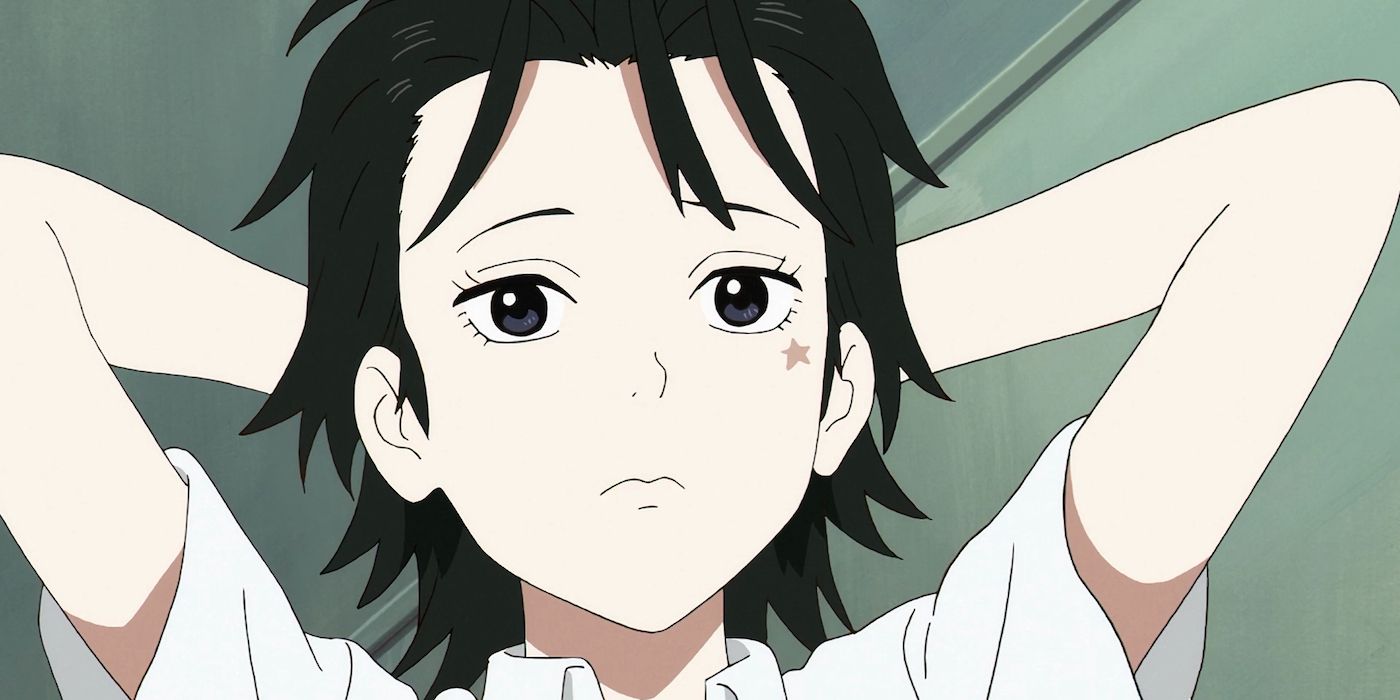Best Anime of the Summer 2021 Season
Every three months, the anime season comes and goes, and now that we're in October, the Summer 2021 season has officially come to a close. There are always more anime being made than can reasonably be watched by anyone, and many of them turn out to be unworthy of your time. There are always gems, though, so if you didn't keep up with everything or like to wait and see how things pan out before binging the shows that turned out to be great, we've got you covered with three Summer 2021 anime you definitely shouldn't miss.

First comes Love Live! Superstar!!, the latest entry in the massively successful Love Live! multimedia franchise. If you're unfamiliar, Love Live! always follows a group of high school girls who want to become "school idols," which are essentially indie pop stars that compete in a fictional event called the "Love Live" to become international song and dance sensations. The series has been going strong for years ever since the first season took the world by storm in 2013, and Superstar!! is the fourth anime entry so far. While they all follow a similar formula — the girls usually attend a school that is facing trouble for whatever reason and try to win Love Live in order to save it from closure; they never start the show as a cohesive unit but slowly come together through the power of music and friendship; there's always a skeptical student council president that needs convincing to join the group — each season has its own unique charm that keeps it fresh for returning fans.
This time, Superstar!! brought back Takahiko Kyogoku, the director of the original series, and he brought in much of his staff from over the years as well. With him and his team, Superstar!! successfully recaptures the energy and enthusiasm that made the original show such an infectiously fun time. Masterful comedic timing, amusing framing, and hilarious gags are all reminiscent of the first series, made even better by the refinement of time making the team all the more charming. In addition, the traditional large cast — usually nine main girls — has been truncated here to just five, giving the characters ample room to breathe, leading to a group that feels much more cohesive with compelling arcs. Best of all, despite the returning staff and intimidating size of the franchise, Superstar!! is entirely stand-alone, requiring you to know nothing about the extended history of Love Live! thus far. If you've never tried Love Live! before or burned out on the endless stream of content and are looking for a wholesome, heartwarming, genuinely funny time with lovely animation to boot, check out Love Live! Superstar!!

On the other side of the "girls in a performing arts club" coin, we have Kageki Shojo!!, an adaptation of a 2012 manga of the same name. Kageki Shojo!! is about two girls attending a school for the performing arts, each with very different reasons. One is Sarasa, a tall girl who grew up doing kabuki, a traditionally masculine discipline, who wants to break the norms of women's theater by performing as Lady Oscar in The Rose of Versailles, despite her height pigeonholing her into male roles. The other is Ai, an ex-idol whose trust issues with men got her in trouble after a negative interaction with a fan, who is trying to find a place in a very different form of entertainment.
Kageki Shojo!! uses its fictional school as a stand-in for the real-world Takarazuka Revue, a women's musical theatre group that has been operating since 1913. Takarazuka has an interesting and at times contradictory legacy, giving women a place to shine and express themselves in an industry that is rarely friendly to them, yet at the same time enforcing gender norms in various ways. Kageki Shojo!! tackles these conflicting values in not only the Takarazuka but the entertainment industry and society more broadly, making it interesting if you are familiar with Japanese musical theatre but also completely approachable without that knowledge. The struggles the girls go through, especially Ai, are strikingly down-to-earth, unafraid of approaching themes of abuse and oppression that are at times uncomfortable to watch but important to acknowledge. At the same time, the bond that builds between Sarasa and Ai as they learn about each other and fight through a system that stands to oppose them at every turn is remarkable for how starkly honest it feels, softening the blows of the show's more heartbreaking moments with a clear hope for the future. Kageki Shojo!! is a show steeped in history and culture, but is about universal experiences at its core, making it enjoyable for anyone.

Finally, far and away the best offering of Summer 2021 and even one of the standouts of the entire year is the eclectic and challenging Sonny Boy. Written and directed by One-Punch Man's director Shingo Natsume, Sonny Boy has been a standout recommendation ever since its stunning premiere, but it hasn't rested on its laurels, evolving every single week to become something far more interesting and complex than even its biggest fans could have predicted. The plot, as much as Sonny Boy has one, is about a group of students who have suddenly found themselves removed from the rest of society, wandering through various "worlds" with odd rules governing them and no obvious way to return to their normal lives. It initially draws comparisons to Lord of the Flies, but as it goes on, the mystery of their situation, and what Natsume ultimately intends for Sonny Boy, expands far beyond simple comparisons to its inspirations.
Throughout its run, Sonny Boy addresses themes of capitalist exploitation, social isolation, and the power of community, ultimately challenging its characters to consider the very purpose of life. It's a constant rumination on all sorts of philosophical topics, not so much answering any questions as much as asking and then pondering on them. Similarly, its narrative structure is extremely loose; halfway through the show, the central conflict is more or less "resolved" with what would have been a clear finale in a weaker show. Simple conclusions aren't the game Sonny Boy is playing, though, and it continues for another half a season, refusing to give its characters — or the viewer — clean answers to either its story or the ideas it is interested in. All of this is accompanied by Natsume and his team's phenomenal animation work that has to be seen to be believed. Episodes are shockingly beautiful for TV production, with remarkable, otherworldly settings and transcendent, trippy cuts of animation that accentuate the loose world and ideas the show is always playing with; it's a poster child for productions that can only be done justice in animation. If you're looking for a traditional narrative with clearly defined rules and arcs, this show might disappoint, but if you're willing to engage with an anime that is more interested in ideas than answers, following compelling, sometimes harrowing stories to their natural conclusions without ever dipping into despondent nihilism, you can't do better than Sonny Boy.


التعليقات على الموضوع